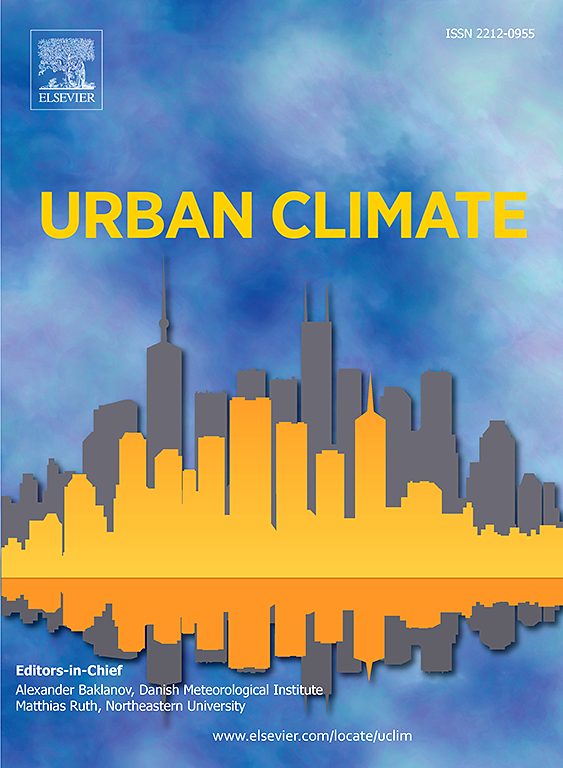Relationship between LCZ and physical activity in residential areas: A mediating role of perceptions of heat risks in climate change
IF 6
2区 工程技术
Q1 ENVIRONMENTAL SCIENCES
引用次数: 0
Abstract
Climate change has escalated heat risks in urban areas, which caused complex impacts on physical activity and an urgent need for better urban environments. Psychological knowledge helps explain the relationship between urban environment and physical activity levels (PA). Utilizing perceptions of heat risks in climate change (PHR) as the intermediary, the research explored the relationships between the local climate zone classifications (LCZs) of residential areas and the PA of the residents. Data on LCZs, PHR, and PA were collected through questionnaire surveys and remote sensing analysis, with mediation analysis, utilizing the Bootstrap method, applied to test whether PHR mediated these relationships. Results indicate that LCZs significantly affect PHR. Moreover, PHR could modulate residents' PA, with higher “Affective response” correlating with decreased sedentary duration, while higher “Self-efficacy” and “Cognizance” were linked to increased walking duration. Notably, only “Adaptation intentions” appeared to sway the metabolic equivalent. Additionally, LCZs could affect PA indirectly through the mediating influence of PHR. However, some PHR indicators might mitigate some of the direct impacts of LCZs on PA and attenuate the connection between them. This research reveals psychological mechanisms linking urban environments to PA under climate change, informing urban climate governance and healthy city planning.
居住区的LCZ与身体活动的关系:气候变化中热风险感知的中介作用
气候变化加剧了城市地区的高温风险,对身体活动造成了复杂的影响,并迫切需要改善城市环境。心理学知识有助于解释城市环境与身体活动水平(PA)之间的关系。以气候变化中的热风险感知(PHR)为中介,探讨了居住区局部气候带分类(lccs)与居民PA之间的关系。通过问卷调查、遥感分析等方法收集了lccs、PHR和PA的数据,并采用Bootstrap方法进行中介分析,检验PHR是否在这些关系中起中介作用。结果表明,lccs对PHR有显著影响。此外,PHR可以调节居民的PA,较高的“情感反应”与减少的久坐时间相关,而较高的“自我效能”和“认知”与增加的步行时间相关。值得注意的是,只有“适应意图”似乎影响了代谢当量。此外,lccs可以通过PHR的中介作用间接影响PA。然而,一些PHR指标可能会减轻lccs对PA的一些直接影响,并减弱它们之间的联系。本研究揭示了气候变化背景下城市环境与PA之间的心理联系机制,为城市气候治理和健康城市规划提供依据。
本文章由计算机程序翻译,如有差异,请以英文原文为准。
求助全文
约1分钟内获得全文
求助全文
来源期刊

Urban Climate
Social Sciences-Urban Studies
CiteScore
9.70
自引率
9.40%
发文量
286
期刊介绍:
Urban Climate serves the scientific and decision making communities with the publication of research on theory, science and applications relevant to understanding urban climatic conditions and change in relation to their geography and to demographic, socioeconomic, institutional, technological and environmental dynamics and global change. Targeted towards both disciplinary and interdisciplinary audiences, this journal publishes original research papers, comprehensive review articles, book reviews, and short communications on topics including, but not limited to, the following:
Urban meteorology and climate[...]
Urban environmental pollution[...]
Adaptation to global change[...]
Urban economic and social issues[...]
Research Approaches[...]
 求助内容:
求助内容: 应助结果提醒方式:
应助结果提醒方式:


